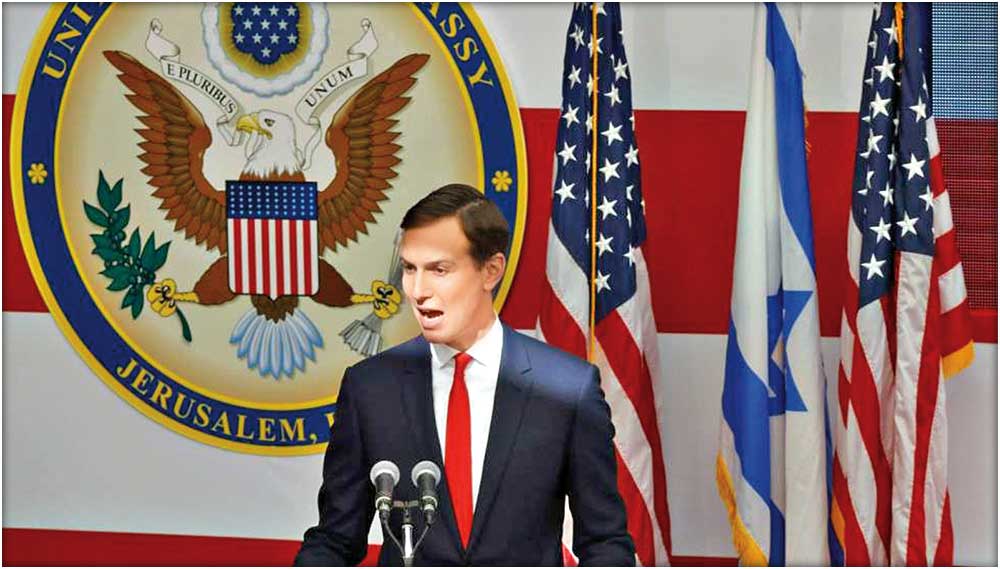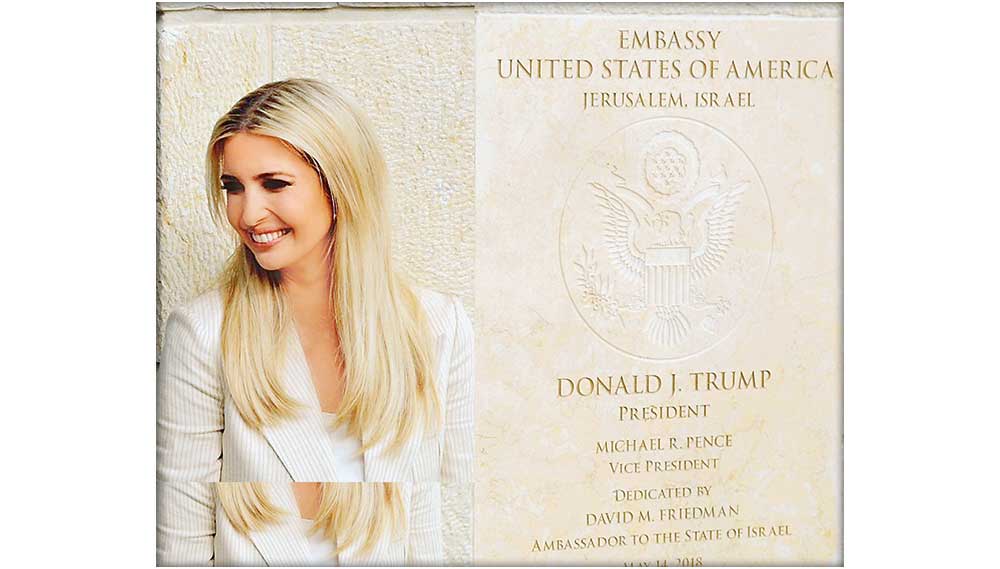MUSLIMS ENTER AMERICAN POLITICS
- 10 Nov - 16 Nov, 2018
More than 15 years ago I co-edited a book that I still cherish fondly, despite the fact that very few people ever read it. It really doesn’t matter that Peace Fire: Fragments from the Israel-Palestine Story, co-edited by me and Paul Hilder, made little impact when it was published in 2002. If it could have made a difference in the immense and ongoing human suffering in the Middle East, then of course, I would have hoped for it to have such an impact. But previous books had already taught me the futility of hoping that the publication of any book could really make any material or political difference in the world. Since then, persistence and hard experience have taught me that there are other good reasons – in fact, better reasons – to write and publish books.

So the value of Peace Fire was as a chapter in my lifelong education, and that’s something to be grateful for in itself. Thanks to the experience of co-editing the book, and the things I learned from it, I feel I can legitimately look back now and say that I do understand the situation in the Middle East. In some ways, it’s not actually hard to understand.
Several principles determined the character of the Peace Fire-project. One of these was that the selection would be chronological: the pieces were arranged in chronological order, covering the period from mid-2000 to September 2002, including what became known as the second intifada. Another principle was that the selection would be very widely inclusive, and without overt or even (we hoped) implicit ideological or moral judgment on the editors’ part. What this meant was that Peace Fire featured the unfiltered voices of a great many stakeholders in the chronically festering situation in the Middle East, from U.S.-based activists on all sides, to European, Canadian and American (and even Pakistani) journalists and academics, to right-wing Israeli settlers, to transcripts of the testimonial videos of Palestinian suicide bombers.
Paul and I felt that this unfiltered, unjudged aspect of the material was important to the Peace Fire-project: We would lay it all out, to the best of our ability, and let readers sort through the moral, political and historical implications as best they could. And connected to this was a fourth principle, or rather a circumstance, for which we made no apology: that neither of the editors was a Jew, an Arab or a Muslim. Paul was English, I was American, and the only interest either of us had in the subject matter was in learning and understanding.
In addition, neither of us had ever even visited the Middle East. It’s strange and perilous to claim a negative as a credential, but Israel-Palestine is such a strange and deeply fraught geopolitical fact affecting us all, worldwide, and one that chronically and severely skews American domestic politics. Thus, simply as a patriotic American who cares about the wellbeing of my own country, I feel and claim a stake in the situation in the Middle East. (I still have never visited Israel or Palestine; Paul made a reporting trip there as part of the Peace Fire project.)

Given all of the above, perhaps the most revealing lesson learned for me from the experience of editing Peace Fire was how insistently the oft-drawn, almost hackneyed parallel between Israel-Palestine and apartheid-era South Africa reared its head. Paul and I actually tried actively to avoid emphasising or including that strongly disputed parallel – yet it kept finding its way into the book despite our efforts, much as water finds its level.
And what that tells me is that the parallel is a true and legitimate one. And, if it is true and legitimate, then it’s one that we had better put in our pipe and smoke. Racial separation and heavy-handed oppression of a majority by a heavily armed minority was not defensible in South Africa between 1948 and 1994, and it’s not defensible in Israel and Palestine today. It might well be that all the articles and books any of us will ever write will have exactly zero effect on the situation on the ground there. But, even so, the material success of brute power or political or emotional manipulation does not equate to the moral high ground. At the very least, without having to claim any expertise in anything, I can say with confidence that the killing of 60 unarmed Palestinians by Israeli soldiers, on the day of the opening of the intentionally provocative new U.S. embassy in Jerusalem, is morally indefensible.
The most memorable moment for me during the editing of Peace Fire was sitting down in Johannesburg with Geoff Sifrin, editor of the South African Jewish Report newspaper, to select one of his columns for inclusion in the book. The piece we selected, “Hugging Madiba,” was a moving eyewitness account of the awe and gratitude with which a racially mixed crowd responded to the unscheduled appearance of Nelson Mandela in a public park in Johannesburg. And an important aspect of the piece’s power is that Sifrin was writing both as a white South African and as a Jew.
“Could there ever be a Mandela in the Middle East?” Sifrin reflected. “A Palestinian Mandela, who will make Israeli kids – and adults – run across a field in awe of him, clamouring to touch him? Or an Israeli Mandela, who will stroll through Palestinian villages and be greeted with applause by the inhabitants, and whose picture will hang on a wall in the house of a Palestinian mother, showing him cradling her infant in his arms? Hard to tell. In the 1970s and ’80s in South Africa, nobody would have believed that the scene on the Old Eds cricket ground that Saturday morning could have been possible. What we do know is that Yasser Arafat is not Mandela. Nor is Ariel Sharon.”
Nor, we might add now with bitterness, is Donald Trump or Benjamin Netanyahu. •
COMMENTS